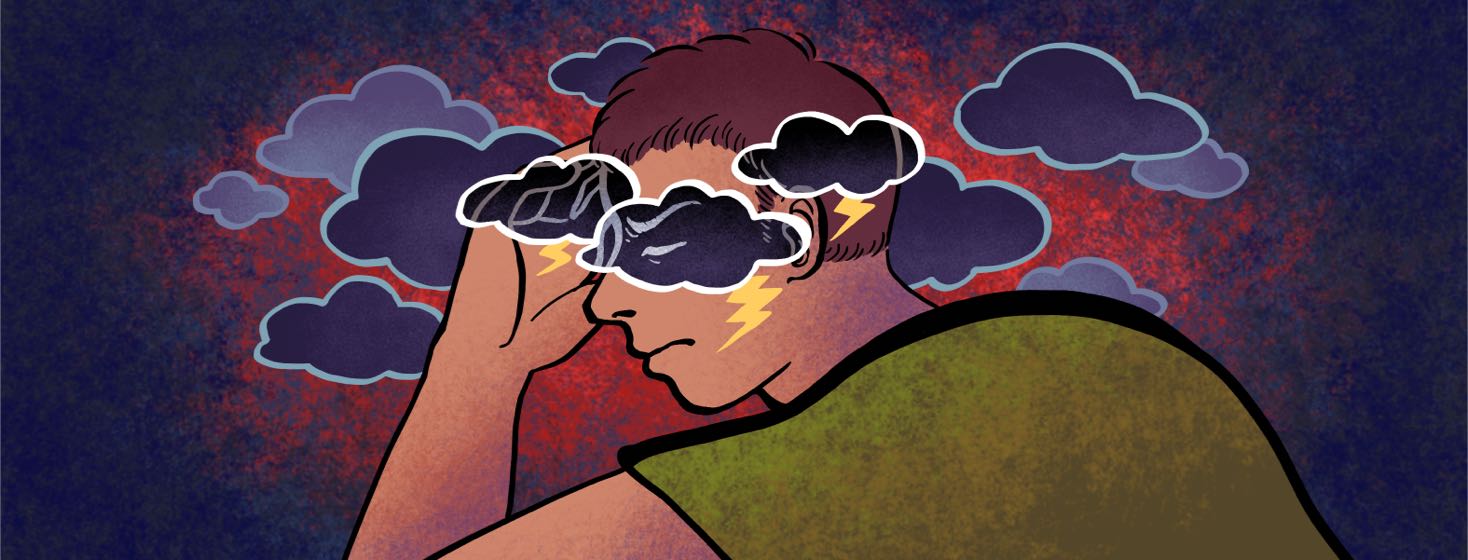More Than Physical: The Emotional Toll Of Prostate Cancer
A prostate cancer diagnosis is life-changing. The diagnosis has a physical, emotional, and financial impact on those living with it. We conducted our Prostate Cancer In America survey to gain a better understanding of what men and their families go through while facing prostate cancer. More than 1,100 men completed the survey and provided a unique look at the emotional toll of the diagnosis.
Survey results show that many men feel they lack support as they battle prostate cancer. The majority of survey respondents shared that they have experienced emotional or mental health symptoms since their diagnosis.
The emotional and mental toll of prostate cancer
While the physical symptoms and side effects of prostate cancer are often talked about, the diagnosis also has a variety of emotional and mental aspects. About 58 percent of survey respondents shared that they have noticed emotional and mental changes due to their prostate cancer. Changes often experienced include:
- Anxiety
- Depression
- Stress
- Loneliness/isolation
- Fear
- Increased feelings of anger and/or frustration
- Panic attacks
- Feeling hopeless or worthless
- Insomnia
- Inability to focus
- Society anxiety
- Loss of intimacy
However, only 33 percent of survey respondents said they have talked about the emotional and mental effects of their diagnosis with their healthcare team.
Many with prostate cancer need and want support
Many survey respondents shared that they needed a variety of support during their prostate cancer journey. Emotional support was the most common type of support requested, with 26 percent of men sharing that they need it. Survey respondents also shared they have needed help with:
- Attending doctor appointments (e.g., taking notes)
- Transportation (e.g., driving to medical appointments)
- Household duties (e.g., cooking, cleaning)
- Medical care (e.g., managing medications)
- Shopping (e.g., groceries, medical supplies)
- Personal care (e.g., bathing, getting dressed)
- Finances
- Managing side effects
Areas where men want more support
The majority of survey respondents – 68 percent – said that there is room for improvement in terms of the emotional support they are currently receiving.
More than 50 percent of survey respondents said they would like more help with household duties and medical care. About 39 percent shared that they would like more help with transportation, while 29 would like more help with shopping needs.
Prostate cancer and quality of life
The vast majority of survey respondents – more than 80 percent – shared that they have accepted their diagnosis/prognosis and that their attitude plays a large role in their quality of life. Survey respondents also shared that the following have positively impacted their attitude:
- 79 percent get support from a partner/spouse
- 75 percent felt they received enough information to make treatment/surgery decisions
- 62 percent found comfort in their faith/spirituality
However, there are some aspects of prostate cancer that have negatively impacted quality of life for survey respondents. These include:
- 49 percent are not coping well with side effects
- 46 percent worry others in their family are also at risk for prostate cancer
- 40 percent feel others cannot understand what they are going through
- 34 percent worry about their family’s future
- 32 percent feel like less of a man
- 20 percent feel like a burden to family and friends
Filling emotional and mental gaps
While survey responses show that the majority of men with prostate cancer feel comfortable talking about their treatment and surgery decisions with their care team, the same cannot be said for talking about the emotional and mental aspects of their diagnosis. Only 33 percent of respondents had talked about depression, anxiety, and stress changes since their diagnosis. Even fewer had discussed feelings of loneliness, fear, or anger, despite many survey respondents sharing that they had experienced them.
Mental health can be affected by any major life change, and cancer is certainly a major change. If your emotional or mental health has changed since your prostate cancer diagnosis, reach out for help. Find someone you feel comfortable with and tell them what you are going through. Your doctor can also help. You may even reach out to a counselor, support group, or spiritual leader for comfort or therapy. You may find support through music or songs, too.
The 2020 Prostate Cancer In America survey was conducted online from November 2019 through April 2020. 1,162 people completed the survey.

Join the conversation